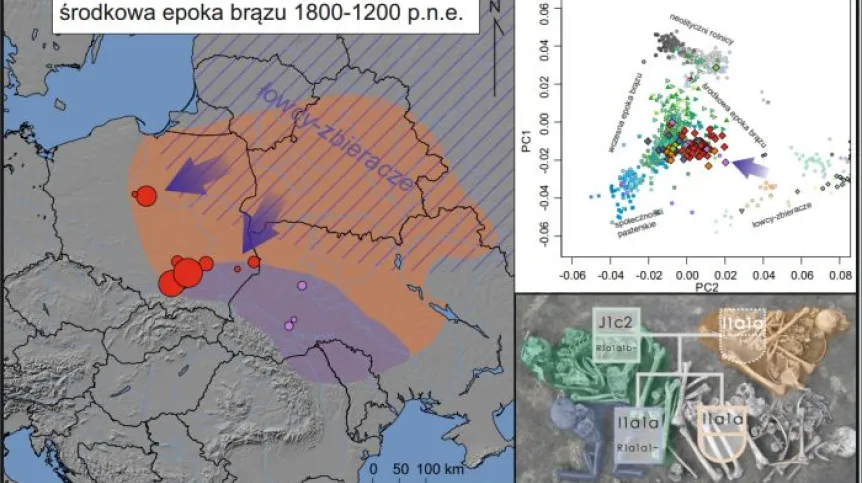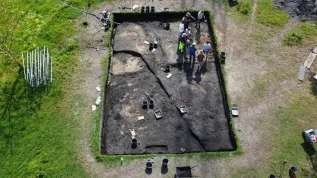
In the Middle Bronze Age, numerous waves of migration flowed into the territory of today's Poland and Ukraine. Their traces are now read thanks to new genetic research.
Population studies and kinship studies of Bronze Age communities (2300/2200-1200 BCE) from Central and Eastern Europe were conducted jointly by geneticists from Poland and Sweden and archaeologists from Poland and Ukraine.
The genetic samples used in the study came from 25 sites in today's Poland and Ukraine. The researchers sequenced a total of 91 genomes. This allowed them to determine the approximate time of migration waves at 3,500 years ago.
'Before the observed migration, these areas were inhabited by populations identified with various archaeological cultures (Iwno, Mierzanowice and Strzyżów) of the Early Bronze Age. They were descendants of shepherd communities that came to Europe at the end of the Neolithic (approx. five thousand years ago) from the Pontic-Caspian steppes,’ says the study’s co-author, Dr. Maciej Chyleński from the Adam Mickiewicz University in Poznań.
The team's research indicates that a migration took place at the turn of the Early and Middle Bronze Age (approx. 3,800 years ago) and left a clear mark on the genetic material. In samples from archaeological sites, the influence of DNA from hunter-gatherers from north-eastern Europe, including the Baltic states, Belarus, but also north-eastern Poland, is visible.
'Our research has shown that this migration was mostly males, which may explain the significant change we observed in the dominant male lineages during the Bronze Age. However, the whole process must have been very complex, because the model we propose does not exclude the participation of descendants of Neolithic farming communities,’ says Chyleński.
He adds that we could be dealing with two processes. Hunter-gatherers mixed with farmers first, most likely somewhere in north-eastern Europe, and only later did this mixed population, along with Early Bronze Age communities, give rise to what we see in the Middle Bronze Age.
The research published in Nature Communications is the first large-scale analysis of the DNA of communities that lived in today's Poland and Ukraine in the Bronze Age.
'Our team conducts extensive research on prehistoric populations. So far, over 1,500 samples representing various historical periods have passed through our laboratory,’ says Chyleński.
Referring to the scientific plans, Dr. Chyleński says that the team intends to continue research on prehistoric migrations in Central and Eastern Europe. The team also investigates later Iron Age populations, which will help trace the effects of the observed Middle Bronze Age migration.
The project, led by Professor Przemysław Makarowicz from the Faculty of Archaeology of the Adam Mickiewicz University in Poznań, was financed by the Polish National Science Centre. (PAP)
PAP - Science in Poland
krx/ zan/ kap/
tr. RL













